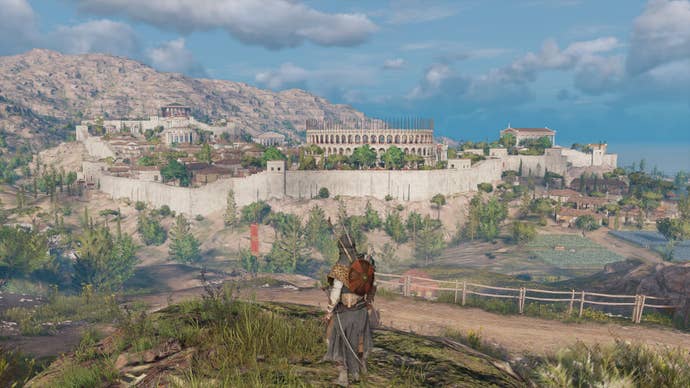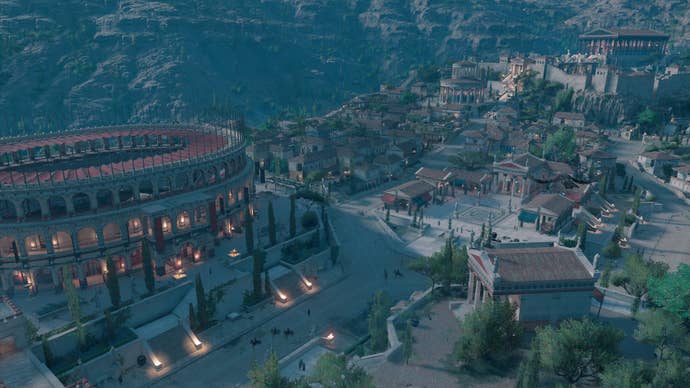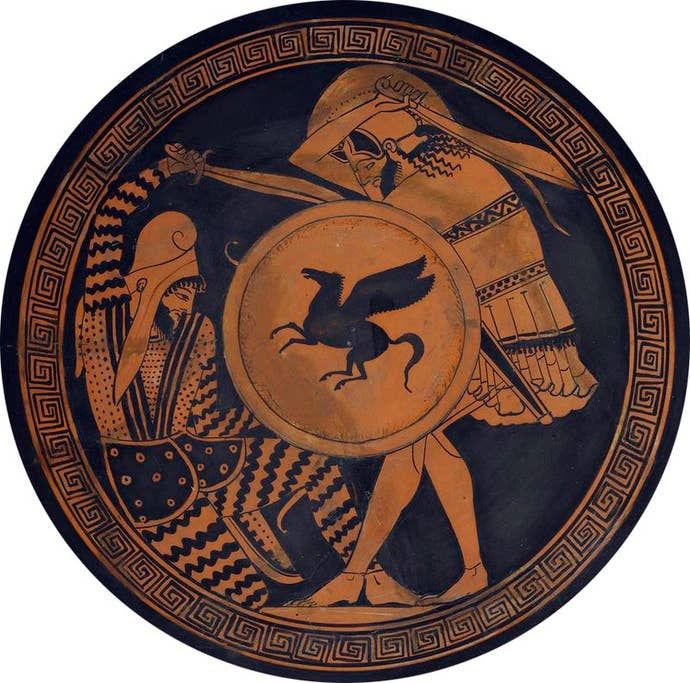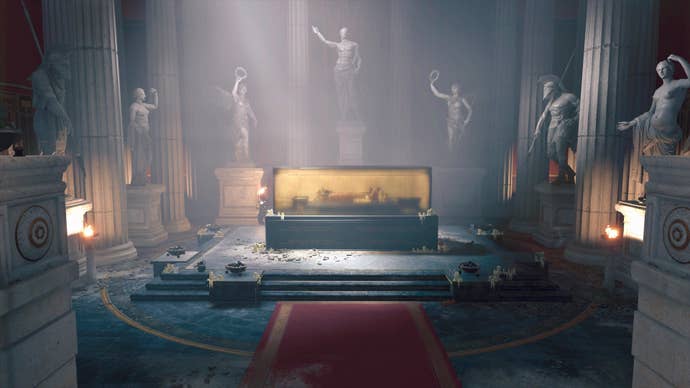If The Next Assassin's Creed Heads to Ancient Greece, When Should It Take Place?
The rumors point to sort of a side step for the series.
This article first appeared on USgamer, a partner publication of VG247. Some content, such as this article, has been migrated to VG247 for posterity after USgamer's closure - but it has not been edited or further vetted by the VG247 team.
After annual entries in the series since 2009's Assassin's Creed II, folks were surprised when Ubisoft took a year off. The franchise returned in 2017 with Assassin's Creed Origins, a title that was well received by critics and fans alike. Now it sounds like the next Assassin's Creed won't be coming until next year.

That's not entirely surprising. During a financial earnings call earlier this year, Ubisoft CEO Yves Guillemot acknowledged that the publisher was focusing on more Assassin's Creed: Origins for 2018, instead of an all-new entry.
"We are concentrating at the moment on [Assassin's Creed: Origins], for which we are going to launch a few other DLCs. So you will be amazed by what will come on [Assassin's Creed: Origins]. That’s the only thing we can say now," Guillemot said at the time.
This aligns with previous statements made by Guillemot during the same time in 2016, noting that annual releases were no longer a priority for Ubisoft.
The goal is not automatically to come back on an annual cycle, but to come on a regular basis," explained Guillemot. "We saw that it was time to give [Assassin's Creed] lots of time so [the developers] could really work on the property and all the mechanics to make sure we could take [the series] to another level. What we are seeing today is really promising. We will be able to come [out] on a regular basis. Now we can't say every year."

Liam Robertson at Comicbook.com is reporting that his anonymous sources have told him that the next Assassin's Creed is heading to ancient Greece. That entry is apparently also scheduled for Fall 2019, with production having begun at the beginning of 2017. Robertson has had previous success with Assassin's Creed leaks, but as always, take this with some skepticism.
Ancient Greece is an interesting option for the series, given the ties the region already has to Assassin's Creed Origins. The first major city in the game is Alexandria, which was established by the Greek king Alexander the Great. The Kyrenaika region of Origins contains the city of Cyrene, which itself was a Greek colony before it came under the control of the Roman Empire. Cleopatra was one of the last monarchs of the Ptolemaic dynasty, established by Ptolemy I Soter, one of Alexander's generals. Even closer to home, Bayek's wide Aya is half-Greek, half-Egyptian, having been born in Alexandria.
What's interesting is most of the major events in ancient Greek history would actually take place prior to Origins. Origins begins in 49 BC and ends with the death of Julius Caesar in 44 BC. The Hidden Ones and Curse of the Pharaoh expansions take place some years after those events. Most of the following parts of Greek history are actually tied up with the Roman and Ottoman Empires.

Prior to the that, one of the largest conflicts is definitely the Greco-Persian Wars, spanning from 499 BC until 449 BC. Parts of this lengthy war were the focus of Frank Miller's 300 and its film sequel 300: Rise of an Empire. An Assassin's Creed game beginning in 492 BC, including the Battle of Marathon, and potentially concluding with the taking of Byzantium in 478 BC would be prime space for romping through history and assassinating some folk. (Fun fact: Byzantium would eventually become Constantinople, the city that Assassin's Creed: Revelations took place in.)
Xerxes I of Persia succeeded his father Darius I during this war, but in the lore of Assassin's Creed, he was killed by another Darius, who is the first recorded user of the series' iconic Hidden Blade. That blade would eventually find its way to Bayek and Aya in Origins.
If Assassin's Creed wanted to avoid treading the same ground as 300, there's also the Peloponnesian War. That conflict was a Greek civil war, pitting the Delian League in Athens against the Peloponnesian League led by Sparta. This period completely changed the face of Greece and the form of Greek conflict, switching from orderly battles into all-out war. The Peloponnesian War stretched from 431 BC to 404 BC, but not all of this period involved conflict.

Finally, there's the rise of Alexander the Great. Alexander III's road to become one of the most important generals in history begins 336 BC when his father Philip II of Macedon, the leader of the League of Corinth, was assassinated. (Historically, the reason seems to be one of romantic betrayal, but Ubisoft can work with that.) Alexander's time at the head of the League of Corinth is pretty short, ending with his death in 323 BC, but in that time he established an empire stretching from Greece to India. That's a lot of ground for Assassin's Creed to potentially cover.
Alexander's empire has been attributed in Assassin's Creed II and Origins to his alignment with the Templar Order and use of the Staff of Eden. The Staff is one of the Pieces of Eden, Ancient technology that confers great power on its wielders. That staff appears in Assassin's Creed Origins in Alexander's Tomb, only to be recovered by the Templars and taken to Rome. From there, potentially the same staff that appears in Assassin's Creed II's final fight. Even better, Alexander himself died to unknown circumstances, with suggestions including fever or poisoning. Once again, prime space for Assassin's Creed to mine.
Any of those eras could act as the framework for an excellent Assassin's Creed game. I'd personally go with the rise of Alexander, but I'm not an Ubisoft developer. Of course, this is just a rumor and we won't have concrete information on the next Assassin's Creed until E3 next year if the series is skipping 2018. Until then, it's best to just sit back and enjoy the ongoing DLC releases for Assassin's Creed: Origins, including The Hidden Ones and the recently-released Curse of the Pharaohs.

